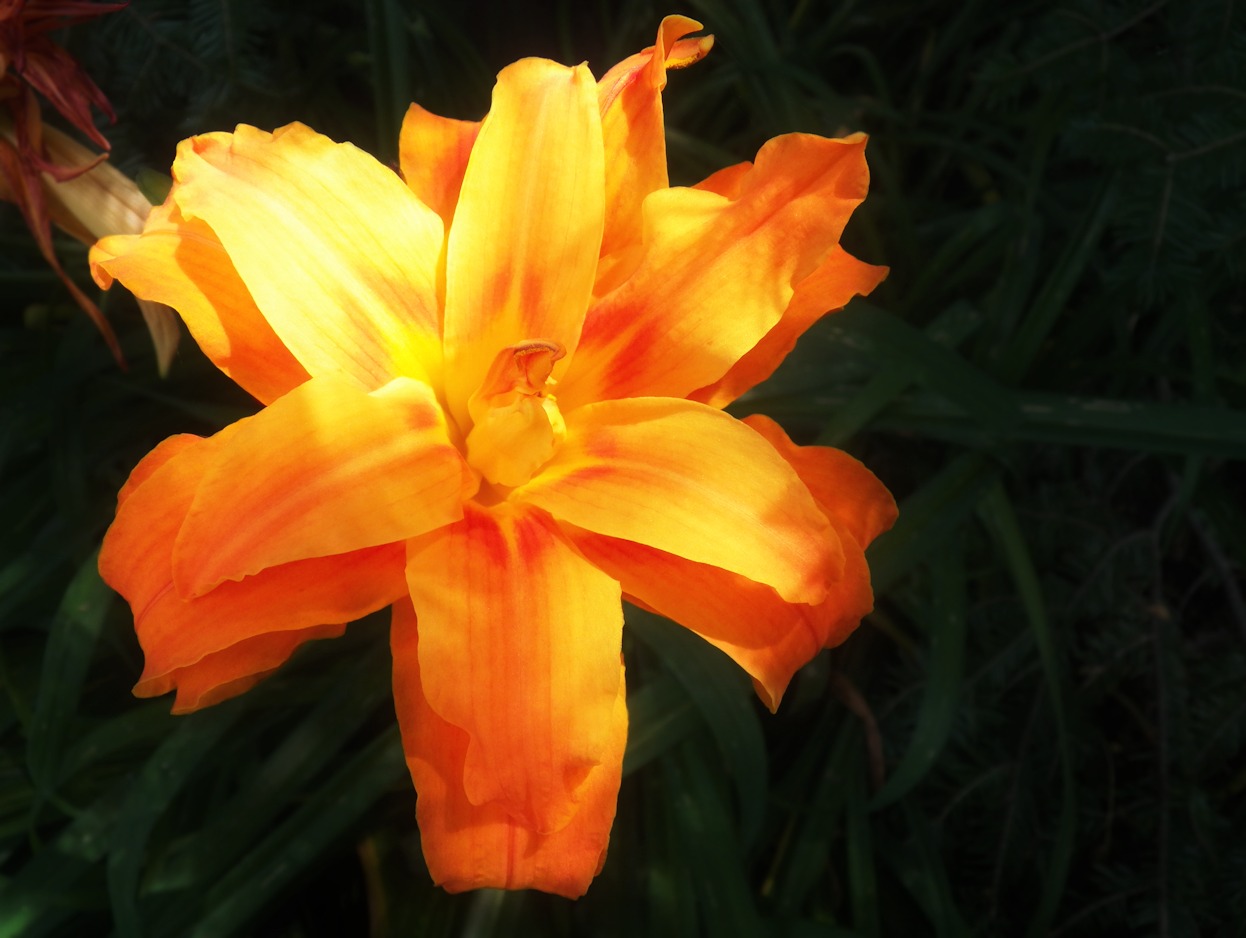Parveen Shakir: A Poetess for the Modern Age Posted by Rachael on Dec 31, 2017 in Hindi Language, Uncategorized
Born in 1952 in Karachi, Pakistan, Parveen Shakir (परवीन शाकिर) was a renowned poet in her lifetime and beyond. In addition to her career as a poet, she also served as a teacher and a civil servant of the Pakistani government. Remarkably, she began to display a talent for writing early in life, so it was not surprising that her first volume of poetry, ख़ुशबू/Khushboo (Fragrance), was published with great critical esteem in 1976. She went on to publish several more volumes of poetry in her lifetime, including इंकार/Inkaar (Refusal) in 1990, in which the poem I’ve translated below is featured.
A highly educated woman with two Master’s degrees in English Literature and Linguistics, she is remembered for her subtle, meticulous verse and, perhaps most importantly, her contribution of the female voice and experience to a literary world almost exclusively inhabited by male writers and dominated by male experience. Although seemingly trivial, her inclusion of the word “लड़की/larkee” (girl) in many of her poems and her use of the feminine, first-person pronoun were revolutionary at the time, as these words insisted on the importance of the female perspective in a poetic universe that made little mention of such phenomena, preferring to designate the “aashiq” (आशिक़ or lover) and “maashuq” (माशूक़ or beloved) as male or gender-less. Her printed words insist on the rich personhood of women and others who find themselves marginalized from society. Sadly, she passed away unexpectedly while driving to work in 1994 in Islamabad; the street on which she died has since been named after her.
The following is a poem from her collection entitled “इंकार/Inkaar” (Refusal or Denial), published in 1990:
|
Hindi Text |
English Translation and Transliteration |
Urdu Text |
| सुलग रहा है मेरा शहर, जल रही है हवा |
Smoldering is my city, burning is the wind (sulag rahaa hai meraa sheher, jal rahi hai havaa) |
سلگ رہا ہے میرا شہر، جل رہی ہے ہوا |
| यह कैसी आग है जिस में पिघल रही है हवा |
What fire is this that melts the wind (yah kaisi aag hai jis me pighal rahi hai havaa) |
یہ کیسی آگ ہے جس میں پگھل رہی ہے ہوا |
ﷺ |
||
| यह कौन बाग़ में ख़ंजर बदस्त फिरता है |
Who is this that roams the grove, dagger in hand (yah kaun baag me khanjar badast phirtaa hai) |
یہ کون باغ میں خنجر بدست پھرتا ہے |
| यह किस के ख़ौफ़ से चेहरा बदल रही है हवा |
What fear is this that paints the wind a different face (yah kis ke khauf se chehraa badal rahi hai havaa) |
یہ کس کے خوف سے چہرہ بدل رہی ہے ہوا |
ﷺ |
||
| शरीक हो गयी साज़िश में किस के कहने पर |
On whose command is an accomplice born (shareek ho gayi saazish me kis ke kehne par) |
شریک ہو گیٴ ساذش میں کس کے کہنے پر |
| यह किस के क़तल पे अब हाथ मल रही है हवा |
Whose murder is this, at which the wind wring its hands (yah kis ke qatl pe ab haath mal rahi hai havaa) |
یہ کس کے قتل پہ اب ہاتھ مل رہی ہے ہوا |
ﷺ |
||
| परिंदे सहमे हुए हैं दरख़्त ख़ौफ़ ज़दा |
Birds frozen in fright, trees bent in terror (parinde sehme hue hain darakht khauf zadaa) |
پرندے سہمے ہوےٴ ہیں درخت خوف زدہ |
| यह किस इरादे से घर से निकल रही है हवा |
What intention is this, with which the wind emerges from the house (yah kis iraade se ghar se nikal rahi hai havaa) |
یہ کس ارادے سے گھر سے نکل رہی ہے ہوا |
Now, let’s test your grasp of register, which I’ve been discussing for the past three blogs. Please provide alternative words (that is, synonyms or partial synonyms) for the following and designate the source language (if known). Answers are below:
- बाग़/baag (masc. noun, Persian): garden.
- ख़ंजर/khanjar (masc. noun, Arabic): dagger (usually curved).
- बदस्त/badast (adverb): “ब/ba” is simply a Persian prefix meaning “with” and “दस्त/dast” is a Persian word meaning “hand.” Taken together, these words mean “in hand.”
- ख़ौफ़/khauf (masc. noun, Arabic): fear.
- शरीक/shareek (masc. noun, Arabic): accomplice, confederate, comrade, partner.
- साज़िश/saazish (fem. noun, Persian): collusion, conspiracy.
- क़तल/qatal (masc. noun, Arabic): murder, killing.
- परिंदा/parindaa (masc. noun, Persian): bird.
- सहमना/sehmnaa (verb, Persian): to feel fear.
- दरख़्त/darakht (masc. noun, Persian): tree.
Answers:
- बग़ीचा/bageechaa (masc. noun, Persian), less formal than “बाग़/baag.”
- छुरा/churaa (masc. noun), less formal and specific than “ख़ंजर,” this word refers to a large knife, dagger or blade. An alternative is “छुरी/churi,” (fem. noun) which specifies a smaller blade. You will notice this pattern in Hindi whereby larger objects are designated with the masculine “आ/aa” ending as in “छुरा” and smaller objects are designated with the feminine “ई/ee” ending as in “छुरी.” “चाकू/chakoo” (masc. noun) is also a common word for a knife (such as one would use for eating).
- हाथ में/haath me. “हाथ/haath” (masc. noun) is the most common word for hand in Hindi.
- डर/dar (masc. noun, Prakrit): most common word for “fear” in Hindi. भय/bhay (masc. noun, Sanskrit) also means fear, less common than “डर” but you should still know it.
- साथी/saathi (masc. or fem. noun): companion (usually with a positive connotation). If you would like to denote a negative connotation, you could use a word like “सह-अपराधी/seh-apraadhi” which means something like “fellow criminal” or, in other words, accomplice. Just as “ब/ba” is a Persian prefix that means “with,” “सह” or “स” are prefixes in Sanskrit that denote the same thing. “सहकारी/sehkaari” is another partial synonym that means “one who does alongside” or companion, confederate, etc.
- षड्यंत्र/shadyantra (masc. noun, Sanskrit): conspiracy. Uncommon. Kudos to you if you guessed this! “षड्” is a prefix in Sanskrit meaning “six” (referring to the six systems of Indian philosophy) and “यंत्र” is a masc., Sanskrit noun meaning “instrument, device, machine.”
- हत्या/hatyaa (fem. noun, Sanskrit): murder.
- चिड़िया/chiriyaa (fem. noun, Prakrit): bird. पक्षी/pakshi (fem. noun, Sanskrit) is a more formal way of saying this. Another common word is “पंछी/panchi” (fem. noun).
- डरा होना/daraa honaa, डर लगना/dar lagnaa, डरना/darnaa: to feel fear.
- पेड़/per (masc. noun): tree. Another, more formal way of saying this is वृक्ष/vriksh (fem. noun, Sanskrit).

Build vocabulary, practice pronunciation, and more with Transparent Language Online. Available anytime, anywhere, on any device.






